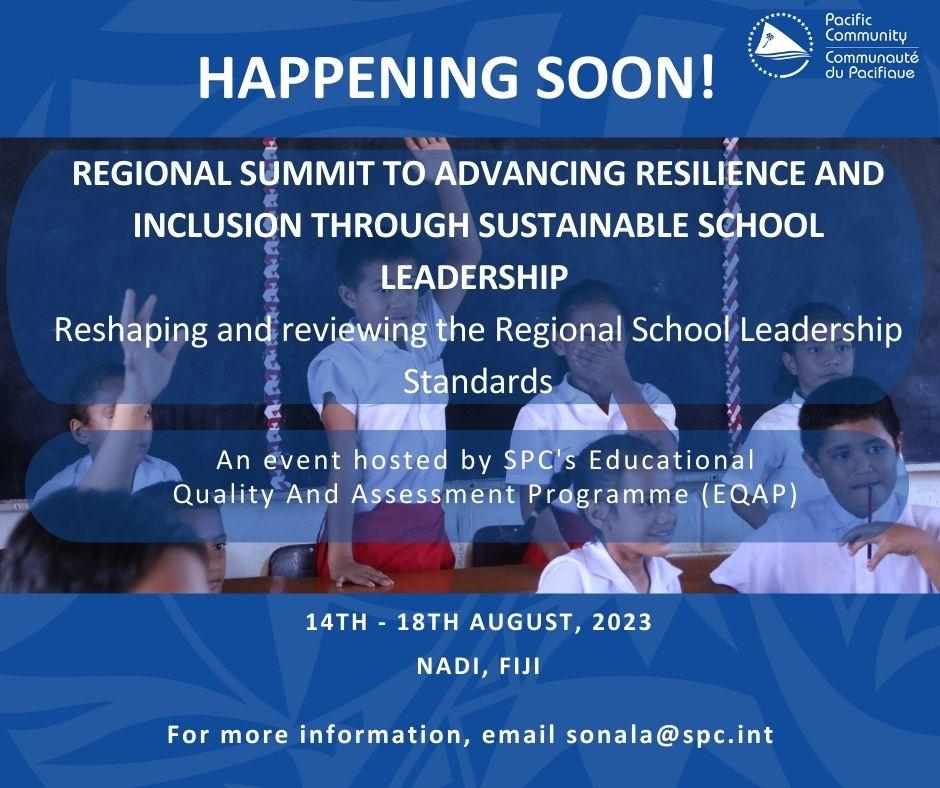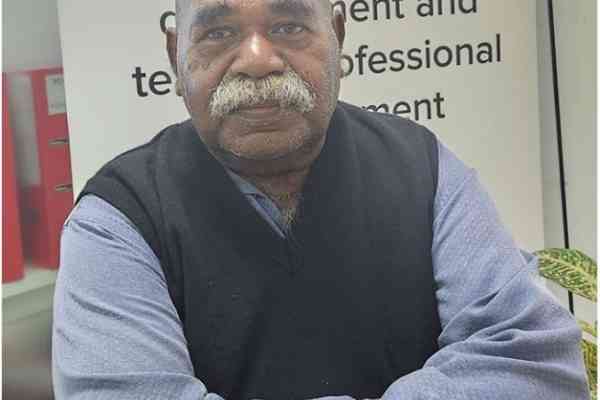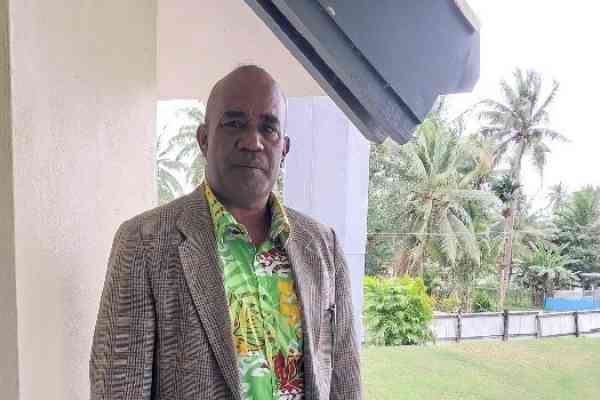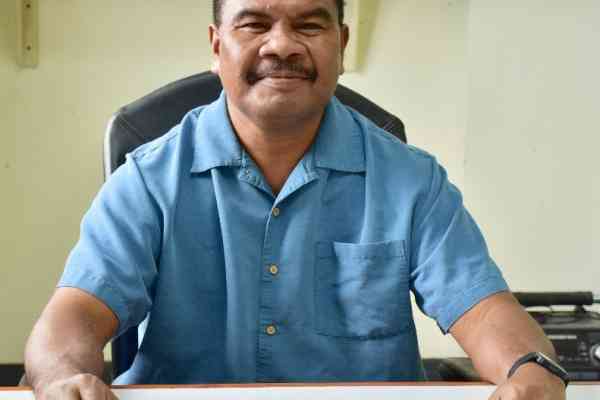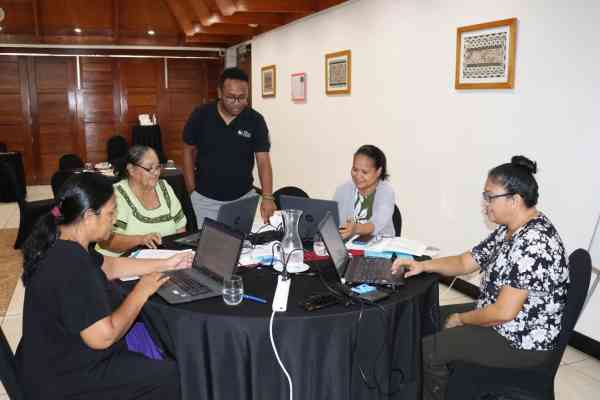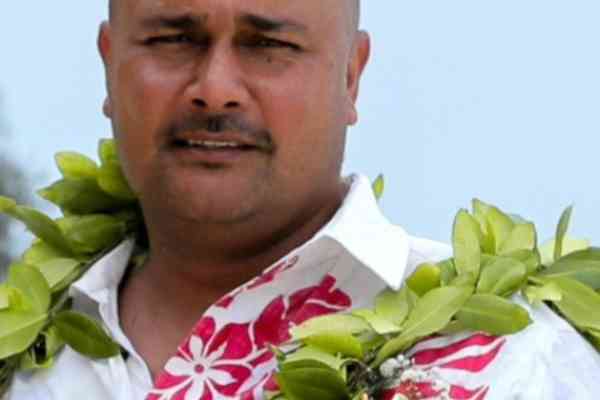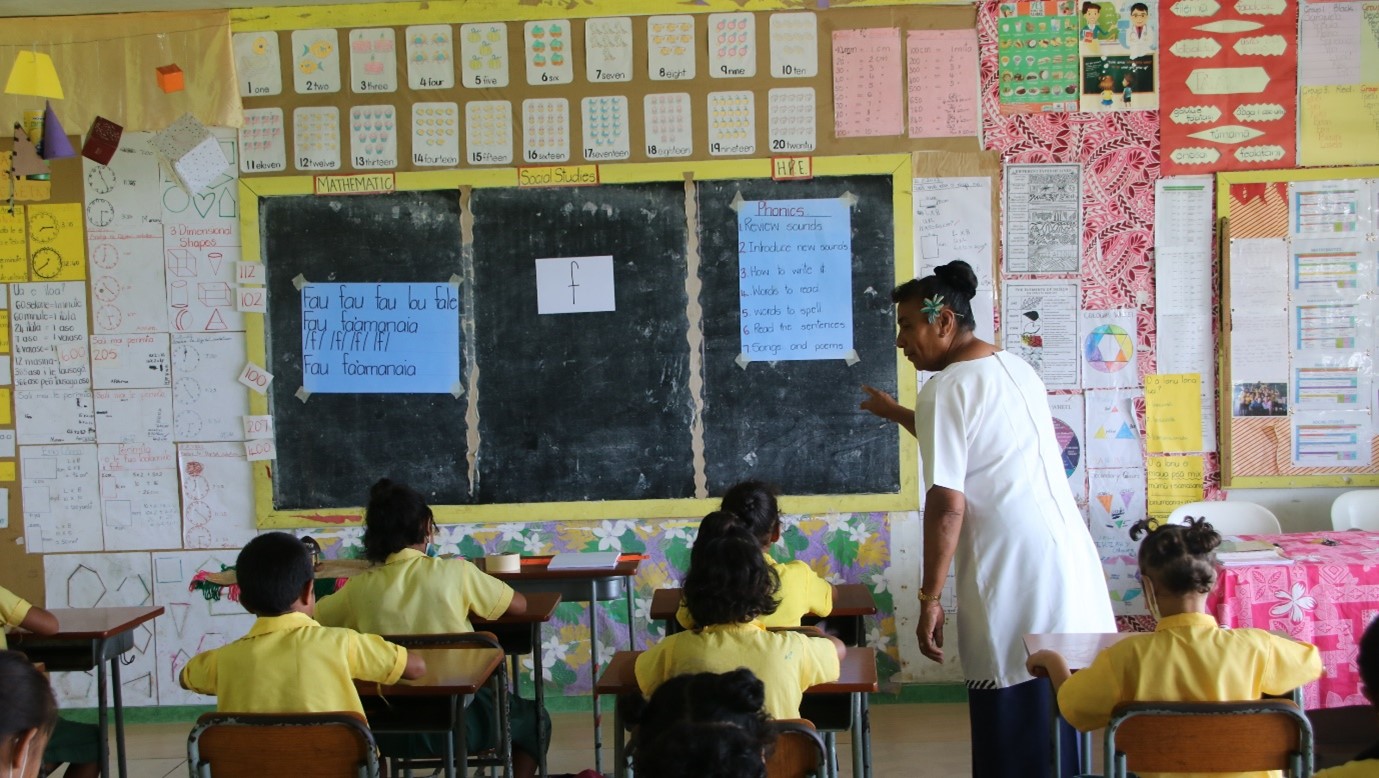
While acknowledging the challenging and changing context of the Pacific’s education sector, education managers and school principals from across the region will convene in Nadi from 14 to 18 August for the Regional Summit on Advancing Resilience and Inclusion through Sustainable School Leadership to update the Regional School Leadership Standards that were established in 2012.
This regional document includes a set of professional standards for school principals (also applicable to Head Teachers) and forms the basis for the region’s ministry and departments of education to develop their own national standards. In the 2012 version of the standards, endorsed following regional consultations, 11 standard statements were outlined.
Each of the 11 standard statements outlined the knowledge, skills and understanding school principals are expected to possess to successfully carry out their responsibilities. The standards also specify the competencies and professional practices school principals are expected to demonstrate.
For each of the eleven statements, a set of performance indicators (58 in total) were created, with each one indicating not only the practices expected of principals but also the source of evidence required. Since then, SPC's Educational Quality and Assessment Programme (EQAP) has collaborated with the countries in aligning their national leadership standards to the Regional School Leadership Standards within four core pillars; school leadership, school management, teaching and learning, and community partnership.
These standards help schools and education authorities clarify the knowledge, skills, and attitudes of all principals/head teachers in their journey to influence the development of children and young people under their care.
The Summit will draw on the expertise, experience, and knowledge of the culture and context of the 15 countries in the region, regional and international institutions, donor partners, and international agencies to review Regional School Leadership Standards.
The key objectives of the Summit include:
- Sharing country experiences about the different roles of school principals.
- Identifying the various factors hindering or supporting principals’ effectiveness in nurturing a school environment that promotes a culture of learning.
- Formulating a framework that encapsulates the ideal attributes and professional ethics of a regional school principal.
- Reviewing the current regional school leadership standards and identifying areas that are still relevant and those that are no longer relevant for principals.
- Formulating measures for assessing the performance of principals against a set of standards; and
- Showcasing and demonstrating national and regional tools for monitoring and evaluating the performance of school principals.
More resources:
More information:
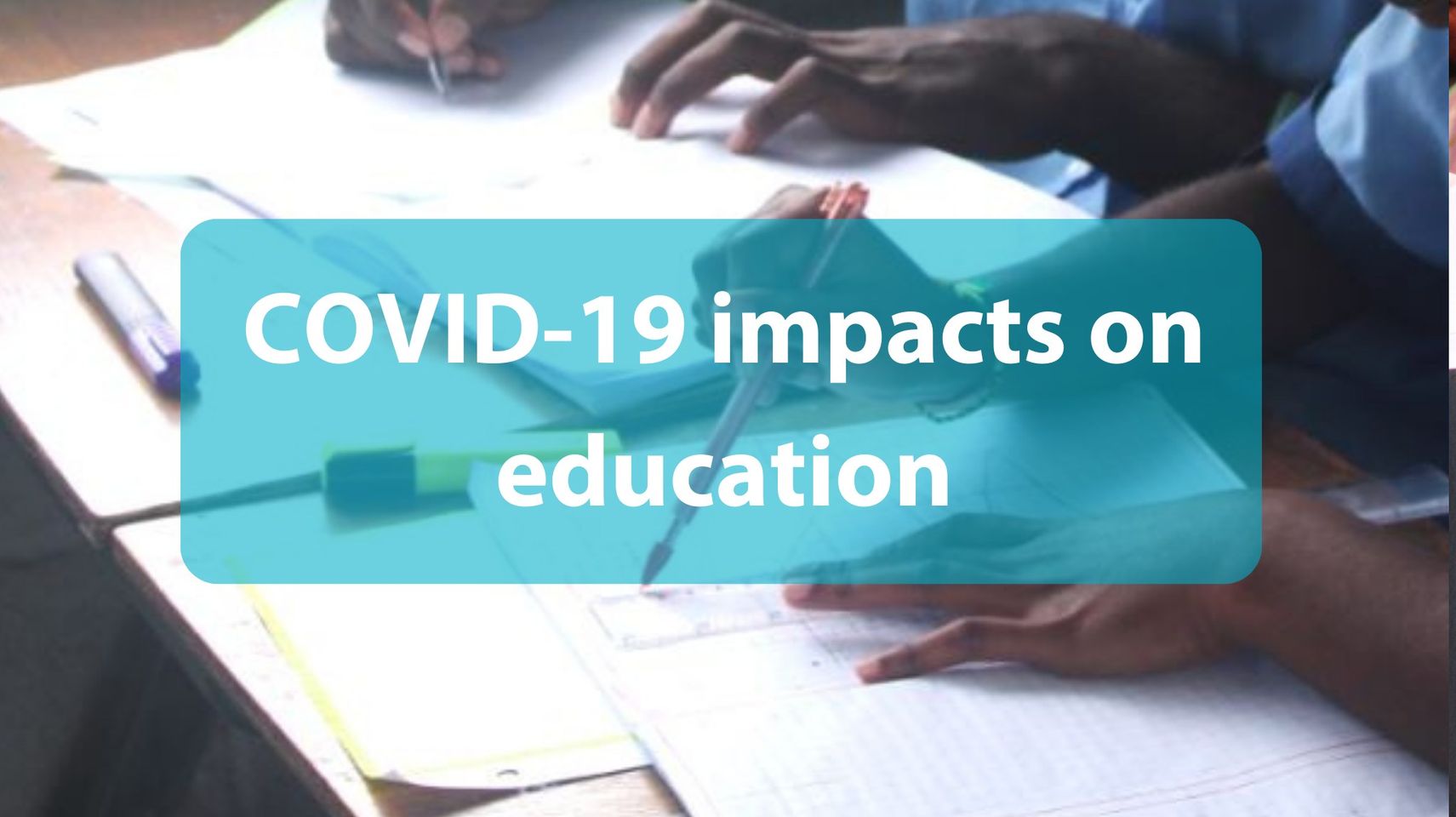
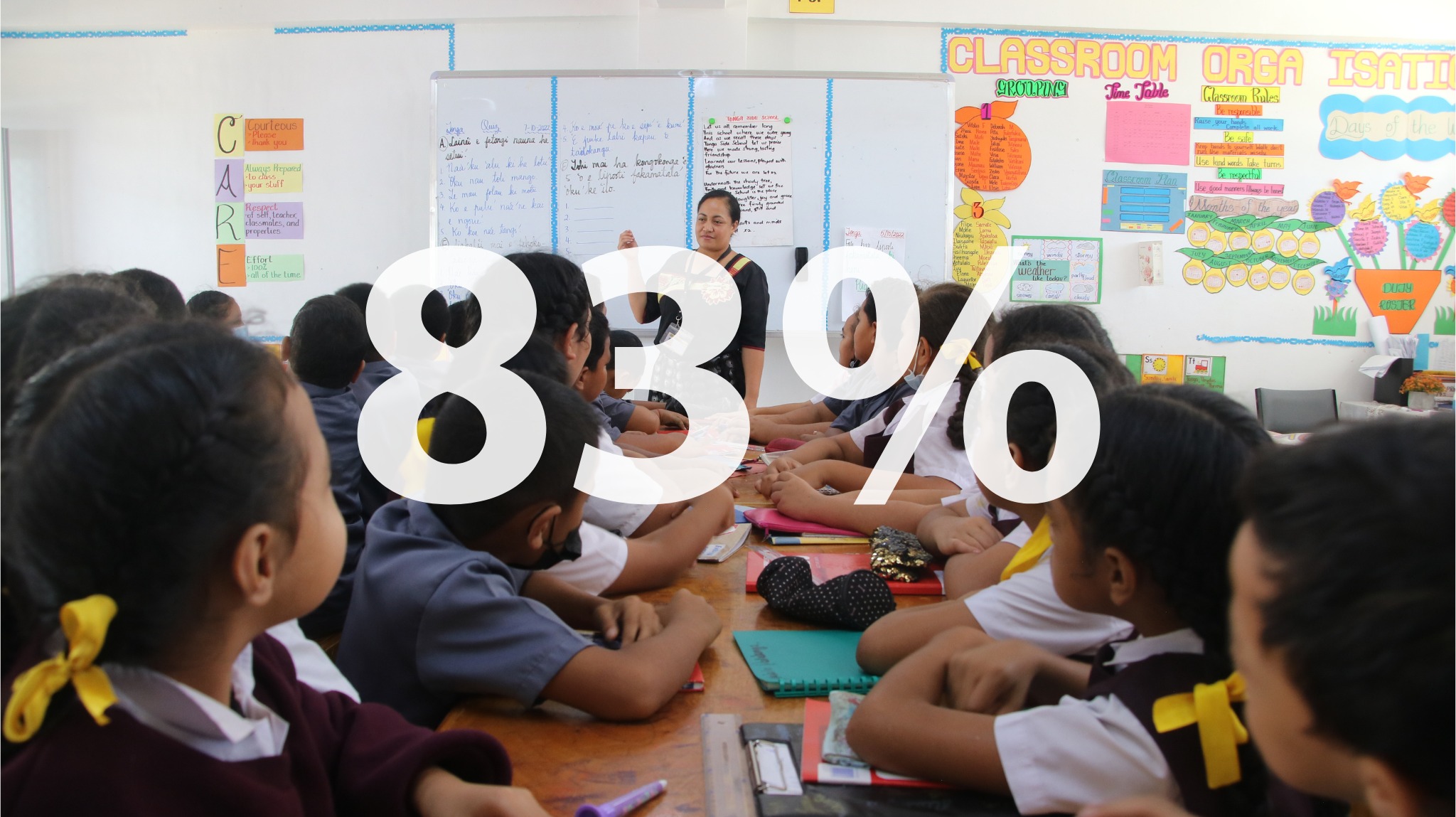
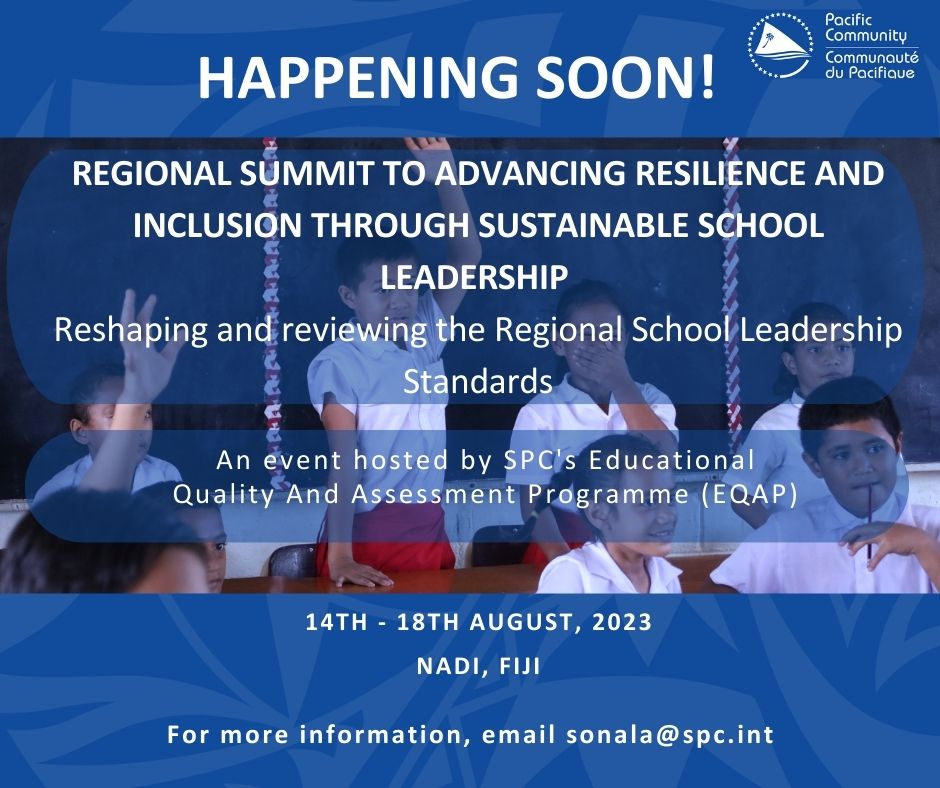
Welcome video message by Michael Noa, Policy and Research Team Leader at SPC
